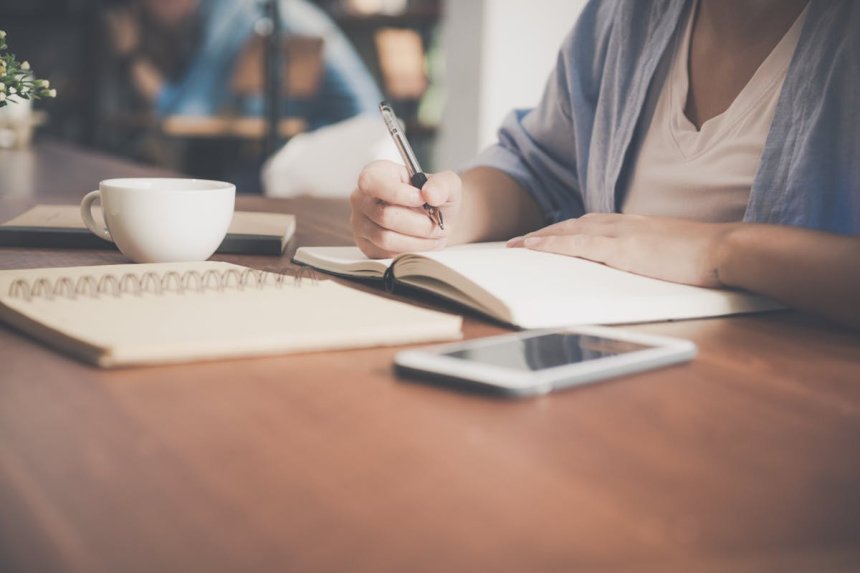How to study for Exam efficiently?
Knowing how to study for the exam the right way is essential for your studies to produce positive results. As we explained, there is no point in studying in a disorganized way. Therefore, if you don't want to compromise your studies, follow our tips to create a more productive routine!

Knowing how to study for the exam the right way is essential for your studies to produce positive results. As we explained, there is no point in studying in a disorganized way. Therefore, if you don't want to compromise your studies, follow our tips to create a more productive routine!
1. Have an agenda
The first step to improving your studies is to have a diary . In it, you will start your study schedule , with your study times and the subjects you need to dedicate yourself to.
But you don't necessarily need to buy a planner. You can organize your studies on your computer! To help you with this task, we have prepared a study plan that you can download for free, organize your entire year and still have tips at hand to improve your routine.
2. Turn off the internet and your cell phone
Our second tip on how to study for the exam is: get off the internet . This is because, while the internet is an inexhaustible source of information and knowledge, it also provides contact with the biggest villain in studies: procrastination.
By cutting off a source of distraction from your study time, you automatically eliminate a major reason for procrastination and use your time much more productively. So, keep your cell phone away and put away your router so you won’t be tempted to search for something online. If you feel the need, print out the material the day before so you can disconnect during your study time.
3. Plan your studies
With your schedule in hand, you need to plan your studies . To do this, divide your daily goals into learning topics. But remember: I recommend studying the same subject for a maximum of two hours . If you are unable to study all of the content in that time, return to the subject at the next scheduled time/day for that subject.
4. Rest your mind
William Douglas, author of the book “How to Pass Competitions and Exams” and one of the greatest references in schematic study, explains that anything in excess can harm your results.
After a few hours of studying, rest your mind, lie down, relax and give your brain time to absorb the information before returning to studying. When you study for hours and hours without a break, the chances of getting overwhelmed and forgetting everything you studied are high.
5. Don't forget to eat
For many students who are preparing for the exam, the study routine is so intense that they even forget to eat. But pay attention to this information: studying is an exercise and each hour of intense study can burn as many calories as a walk of the same length .
With this in mind, remember that the brain needs energy to function, as it is burning energy at a rapid pace. In this sense, the lack of a good diet can cause a drop in blood sugar levels, which will cause slow thinking and comprehension, in addition to reducing the effectiveness of studies.
6. Don’t eat junk food, the famous “crap”
Speaking about nutrition, don't be duped into believing that any food would give you more energy. However, you ought to be worried about the caliber of the meals you consume. It's crucial to remember that consuming insufficient calories gives your brain insufficient energy.
Our recommendation is that you eat healthily in order to provide your brain with not only the caloric energy but also the vitamins it needs to absorb information effectively. Stay away from snacks and cookies, okay?
7. Study all the subjects covered
It is common to focus only on the subject that we have the most difficulty with. However, it is necessary to create a study schedule that includes all the subjects covered for exam . Of course, the time allocated to each subject will vary according to the level of difficulty they represent for you, but no subject should be neglected.
8. Exercise your body and mind
Some exercises and activities are known to activate areas of the brain that increase understanding of the material studied . Some of the activities, both physical and mental, that increase performance when studying are:
- walking : releases endorphins in the brain , thus improving reasoning;
- yoga : in addition to releasing endorphins, it combats anxiety and helps activate both hemispheres of the brain;
- Meditation : This technique has shown several scientifically proven positive effects for its practitioners. After 15 minutes of deep meditation, both hemispheres of the brain are activated, which combats anxiety and nervousness.
9. Use a color system
A good tip on how to study for the exam is to use a color system in your summaries . This way, you can give your eyes instructions to analyze the main information first and then the explanations.
Additionally, a color system activates your visual memory and can help you achieve better results in your studies.
10. Use post-its and markers
Do you need to highlight some information in your notebook or even make observations while studying?
You can be sure that these features will help you mark the most important information or make your notes easier and quicker to find.
11. Respect your routine
When we talk about how to study for the exam, repetition is an excellent tool. This is a way for you to work and adapt not only your mind, but also your body, to the study routine that you will have for a long time. The tip here is: don't stray from the routine . Keep your mind focused and don't deviate from your study plan.
12. Set aside time to study and practice writing
It's no news that writing is very important for your exam score, right?
And writing a good essay is not just about getting there and writing. On the contrary: it requires a lot of study, preparation and practice. So, don't forget this very important step in the exam!
13. Avoid noisy places
Noise is often a major source of distraction. Therefore, studying in quiet places, such as libraries, study rooms or even your bedroom, is an excellent strategy to improve your concentration and, consequently, the efficiency of your studies.
14. Always read
You've probably heard this tip before. And if you've already started studying for the exam, it's probably already part of your routine. But it doesn't hurt to reinforce its importance, right?
Reading expands your vocabulary and spelling knowledge, as well as improving your reading comprehension. So, make sure to schedule some time for books in your schedule!
15. Invest in study groups
Sometimes, study groups can be the best option for you to overcome an obstacle. After all, in these spaces, you can exchange knowledge and learning .
Let's say you're having trouble with a certain subject. In a study group, you have the chance to find someone who's an expert on the subject to help you. Cool, right?
16. Know your brain
It is a basic premise that no human being is the same as another. Therefore, knowing yourself is the best strategy to start studying .
Some people have an auditory learning system, that is, they learn by listening. Others learn by transcribing and writing, while there are students who absorb knowledge only by reading.
17. Make notes
Now let's talk about some techniques to make it easier for you to study and retain content, especially when it comes to more complex topics: summary, review and summary .
Check it out:
- the index card is a study technique that consists of summarizing a subject into topics;
- On the other hand, a summary is a synthesis of a subject, compressed, without losing its essence and without losing its logic. Summarizing subjects and topics helps you understand what you want to learn;
- Another study technique that helps in the retention of content is the review . Reviewing is often confused with summarizing, but it involves describing, expressing your opinion and impression, a certain subject.
18. Avoid overcharging
Excessive demands, both personal and from third parties, negatively affect us. Avoid this type of demand , as it only increases anxiety and reduces the ability to absorb information.
So, are you ready to start your study routine? Now you have the best information on how to absorb the necessary content and achieve great results in your exams!
Share
What's Your Reaction?
 Like
0
Like
0
 Dislike
0
Dislike
0
 Love
0
Love
0
 Funny
0
Funny
0
 Angry
0
Angry
0
 Sad
0
Sad
0
 Wow
0
Wow
0













